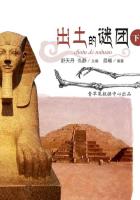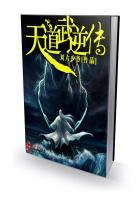Besides this, the system of taxation was radically defective, and the members of the local administration, who received no pay and were practically free from control, were merciless in their exactions. In a word, the Tsars used their power so stupidly and so recklessly that the industrial and trading population, instead of fleeing to the towns to secure protection, fled from them to escape oppression. At length this emigration from the towns assumed such dimensions that it was found necessary to prevent it by administrative and legislative measures; and the urban population was legally fixed in the towns as the rural population was fixed to the soil. Those who fled were brought back as runaways, and those who attempted flight a second time were ordered to be flogged and transported to Siberia.*
See the "Ulozhenie" (i.e. the laws of Alexis, father of Peter the Great), chap. xix. 13.
With the eighteenth century began a new era in the history of the towns and of the urban population. Peter the Great observed, during his travels in Western Europe, that national wealth and prosperity reposed chiefly on the enterprising, educated middle classes, and he attributed the poverty of his own country to the absence of this burgher element. Might not such a class be created in Russia? Peter unhesitatingly assumed that it might, and set himself at once to create it in a simple, straightforward way.
Foreign artisans were imported into his dominions and foreign merchants were invited to trade with his subjects; young Russians were sent abroad to learn the useful arts; efforts were made to disseminate practical knowledge by the translation of foreign books and the foundation of schools; all kinds of trade were encouraged, and various industrial enterprises were organised. At the same time the administration of the towns was thoroughly reorganised after the model of the ancient free-towns of Germany. In place of the old organisation, which was a slightly modified form of the rural Commune, they received German municipal institutions, with burgomasters, town councils, courts of justice, guilds for the merchants, trade corporations (tsekhi) for the artisans, and an endless list of instructions regarding the development of trade and industry, the building of hospitals, sanitary precautions, the founding of schools, the dispensation of justice, the organisation of the police, and similar matters.
Catherine II. followed in the same track. If she did less for trade and industry, she did more in the way of legislating and writing grandiloquent manifestoes. In the course of her historical studies she had learned, as she proclaims in one of her manifestoes, that "from remotest antiquity we everywhere find the memory of town-builders elevated to the same level as the memory of legislators, and we see that heroes, famous for their victories, hoped by town-building to give immortality to their names." As the securing of immortality for her own name was her chief aim in life, she acted in accordance with historical precedent, and created 216
towns in the short space of twenty-three years. This seems a great work, but it did not satisfy her ambition. She was not only a student of history, but was at the same time a warm admirer of the fashionable political philosophy of her time. That philosophy paid much attention to the tiers-etat, which was then acquiring in France great political importance, and Catherine thought that as she had created a Noblesse on the French model, she might also create a bourgeoisie. For this purpose she modified the municipal organisation created by her great predecessor, and granted to all the towns an Imperial Charter. This charter remained without essential modification until the publication of the new Municipality Law in 1870.
The efforts of the Government to create a rich, intelligent tiers-
etat were not attended with much success. Their influence was always more apparent in official documents than in real life. The great mass of the population remained serfs, fixed to the soil, whilst the nobles--that is to say, all who possessed a little education--were required for the military and civil services.
Those who were sent abroad to learn the useful arts learned little, and made little use of the knowledge which they acquired. On their return to their native country they very soon fell victims to the soporific influence of the surrounding social atmosphere. The "town-building" had as little practical result. It was an easy matter to create any number of towns in the official sense of the term. To transform a village into a town, it was necessary merely to prepare an izba, or log-house, for the district court, another for the police-office, a third for the prison, and so on. On an appointed day the Governor of the province arrived in the village, collected the officials appointed to serve in the newly-constructed or newly-arranged log-houses, ordered a simple religious ceremony to be performed by the priest, caused a formal act to be drawn up, and then declared the town to be "opened." All this required very little creative effort; to create a spirit of commercial and industrial enterprise among the population was a more difficult matter and could not be effected by Imperial ukaz.















